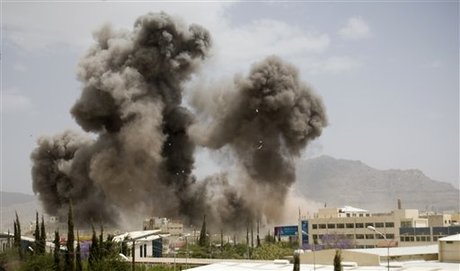Saudi Policy after Decisive Storm Compels Recalculations by Regional Players
إقرأ هذا الخبر بالعربية
The Saudi-led coalition's air strikes and a possible ground invasion of Yemen to defend President Abedrabbo Mansur Hadi from Huthi rebels transcend the achievements that the conflicting parties would make in the battlefield. Their importance lies in the recalculations that the region's players would make after the operation that was launched by Riyadh last month.
The move of Saudi Arabia and its allies against the Shiite rebels was a form of “revolution” in the policies of Riyadh and Gulf countries amid the turmoil in the region and against the expansion of Iranian influence in more than one state.
The Saudi policy was previously based on containment and the avoidance of direct or indirect clashes with Iran. Such a policy clearly materialized during and after the assassination of former Prime Minister Rafik Hariri and later during the so-called coup against his son Saad Hariri and his banishment from Lebanon.
It materialized in the same manner with the rule of Iraq's former Prime Minister Nuri al-Maliki and then Haidar al-Abadi.
The Saudi containment policy was also clearly visible in Syria when it limited its support to the parties opposing Syrian President Bashar Assad, a move that stopped them short of being on par with the capabilities of the regime and its foreign backers.
But the Decisive Storm was a clear political and military message to Iran that the Saudi strategy has changed and that Riyadh has jumped into an era of confrontation and direct military engagement.
Riyadh's new policy will force the regional players, mainly Iran, to make more political calculations and resort to different options no matter how the battle against the Huthis will end.



